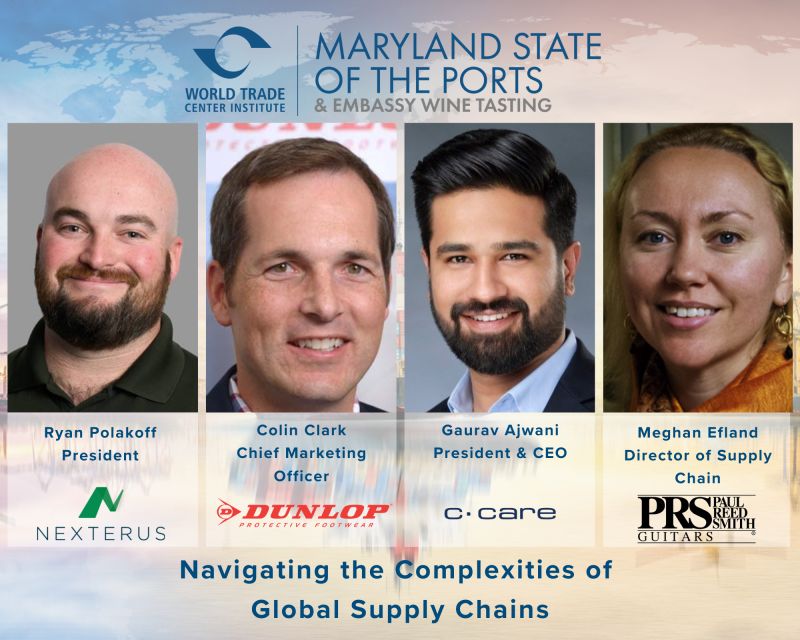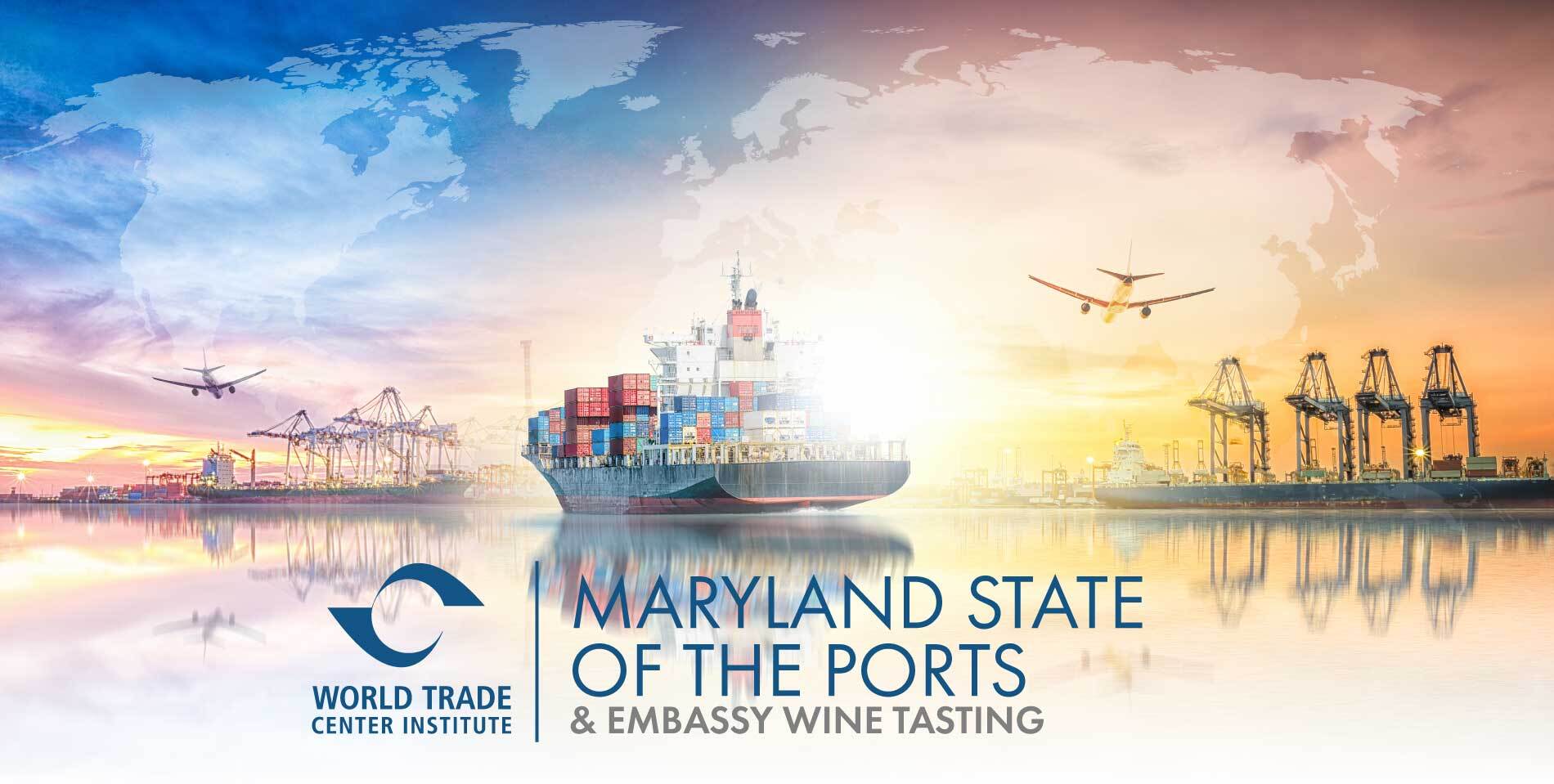
Host: Ryan Polakoff, President, Nexterus
Panel Participants:
Colin Clark – Chief Marketing Officer, Dunlop Protective Footwear.
Gaurav Ajwani – President & CEO, C-Care LLC
Meghan Efland – Director of Supply Chain – Paul Reed Smith Guitars
Q5. As you look into your crystal ball, what is supply chain and success when those two words come together? What does supply chain success look like for you?
Meghan: At the end of 2024, supply chain success is customer service, visibility of information and data, and providing cost savings and better options to the business. It’s all the things we got called out for when it didn’t go well. Now the supply chain is so critical to our business. It’s being that person or that team that is driving solutions using the available technology, using the available data, being able to be adaptive and move forward. And you know, ideally, make things move better for your business and your customers and save yourself some money.
Gaurav: At the end of the day, it all comes down to cash and cost. Over the years, the supply chain has played a crucial role in saving tons of cash by telling each department not to spend money producing or scheduling materials or labor in advance. How do you synchronize the whole organization so everybody understands the bigger picture?
Colin: Our raw materials supply chain is in a good spot. But what success looks like for us for 2024 is servicing our customers better. We’re shipping the right products, forecasting the right materials, and selling the right products. We’re also packaging orders with similar materials, concepts, reasons to buy the product, consumer demand, etc., so we’re an excellent partner to our partners. For example, we launched a brand-new boot that is completely innovative in how it fits. We sell it to a distributor, who sells it to a retailer and an end user. We told everyone about the fit. We did tons of wear trials, and they all got great feedback. Then, we discontinued an older boot that had been around since 1989. We told the distributor how the new boots fit changed everything, but they didn’t tell the retailer and end-user. So, we lost about 16% of our retail business in a year. Now, I look at the supply chain holistically. We needed to give the retailer the right materials so they could tell the end user why the new boot was better. So we brought the old boot back, and we’ve gotten our sales back up. So we learned that servicing our customers better includes product timing, cost rate, etc., and marketing materials the retailers need to grow their business. The more we invest in the supply chain through marketing, sales support, and customer service, the bigger we get with longer-lasting, stickier partnerships.
Q6. As you investigate hiring the next generation of Supply Chain Leaders, what specific skill sets do you think they need to possess to make a difference?
Gaurav: Formal supply chain education is a big plus for the next generation. It is lucrative for organizations trying to optimize their resources. Somebody needs to have textbook knowledge, as it teaches a lot of management theories. However, it delves into data analytics, which is not everyone’s forte. Data analytics teaches you to see the data in new ways. Data analytics with supply chain theories and management is an excellent skill set for people to succeed.
Colin: I would add change management. This generation went through the pandemic, and the world changed so dramatically that they had to deal with many different things. So, being flexible with change management skills is essential. This generation is more entrepreneurial, as they have grown up more adaptable and doing things differently.
Meghan: I agree with the critical thinking skills and engineering background, but soft communication skills are critical. Relationships are meaningful, and we deal with people worldwide, so our employees must be sensitive to other cultures and business practices.
Q7. Does cybersecurity fit within your discussions about the resilience of supply chains? If it does, why am I paranoid?
Colin: We have proprietary compounds, sales data, and secret formulas, but these all live in-house, and we order everything piecemeal individually. While cybersecurity is critical, from a supply chain standpoint, it’s not just our number one focus.
Guarev: Cybersecurity for us is important because, as contract manufacturers, we are producing formulas. We’ve heavily invested in R&D to come up with the formulas, which are all patented. We are making over 1000 different formulas in all 5000 SKUs. We have unique formulas and are always paranoid about what would happen if something happens and the formulas are gone. There is no coming back from that.
Meghan: For us, it’s not the same as these guys. Mostly, it’s about protecting product launches so that our information does not get out into the market so that a competitor can get a leg up on us if they’re quicker to manufacture.
Q8. Yesterday was all about contingency planning - What do I do if I can't get a chassis in Chicago? What do I do if there's a port strike on the West Coast? What in the world happens if YangMing runs out of money? Fast forward to today – there’s no water in the Panama Canal, and geopolitical violence in the Red Sea makes us all go around Africa. We now have to be charged with planning for that, which is unforeseeable. How do you deal with that?
Meghan: We are not a typical lean manufacturing facility. We are looking at critical components in critical assemblies, so we are beefing up on safety stock, which can be a problem for cash flow. When paying for expedited services or adding four weeks to your lead time and transportation, it’s worth having the extra safety stock in inventory.
Colin: We’re a company based in Europe with a land war. We had to plan contingencies around how we service the rest of the business. We get 90% of our components, like steel toe caps and insoles, in country, Europe, or worldwide. Then we need to consider how we get our products to our partners in other parts of the world. Before COVID, we had more international suppliers, but now we have consolidated and localized our suppliers to combat supply chain issues.
Guarev: It’s a mixed bag because we are producing our formulas. So, we are contract manufacturers. We are given a formula or recipe and are asked by customers to buy those ingredients, which must be procured worldwide. Natural disasters, wars, and the pandemic have challenged these multinationals to be more pragmatic about what they want to claim on their labels. This ties our hands to create contingency plans. We’ve had many meetings with our customers, asking for multiple sources of raw materials and suggesting to be more open and unique. Saying you use these exclusive ingredients in your products is just a sales problem. So, companies have started digesting that issue and creating more contingency plans.
Ryan: This question highlights the power of global network optimization. That isn’t new, but risk management within supply chain optimization is. What happens if my sales go up 20%? What does this mean for my supply chain? With network optimization, you create an operating plan that answers these questions.
Q9. I'm curious what you're hearing from some of your suppliers on the ground and how they can stay competitive. Such a hot market, and how are you, from your perspective, when you do look at choosing suppliers, what's going through your minds?
Meghan: We’re doing a lot of dual sourcing. We try to be honest when we send out a quote request. We want the best quality product for the best price. We are very concerned about quality, and if you meet our criteria, you will get 70% of our business, but we can change volumes as needed. We’re a smaller business, and the relationships with our vendors mean that we talk to them about supply chain strategies on our side and ask them to pay attention to what’s going on. We want them to be innovative. When we go into meetings, we want to know what you are doing and how you adapt. We deal with manufacturers whose supply chain is their strong suit. We do have a supplier quality program. A lot of it is educating our vendors, not just how to make a better part, but how to get it to us efficiently, how to package it better, how to look at their cash flow, and how they manufacture items. Maybe we are overstepping, but it’s how we like our partners to be.
Colin: Many suppliers feel the bullwhip effect, where they have too much inventory. So, we’ve seen prices go down, and we’ve been able to pass that cost savings on to customers. Sometimes, customers ask for price reductions. Since many customers have too much inventory, our prices have gone down. But when the customers burn through that inventory, prices will go back up.
Guarev: We are looking for more local suppliers who can be very flexible because our industry demand heavily depends on travel. So, when demand fluctuates, we would like our suppliers to be as flexible. Otherwise, we’re the ones who end up having a ton of inventory because we already placed orders to get all those raw materials, and now our end customer is saying we are moving all this demand to three months out. And that happens very, very frequently because of demand planning issues. We expect our suppliers to be as flexible as possible so that the overall supply chain can take the pressure off.



